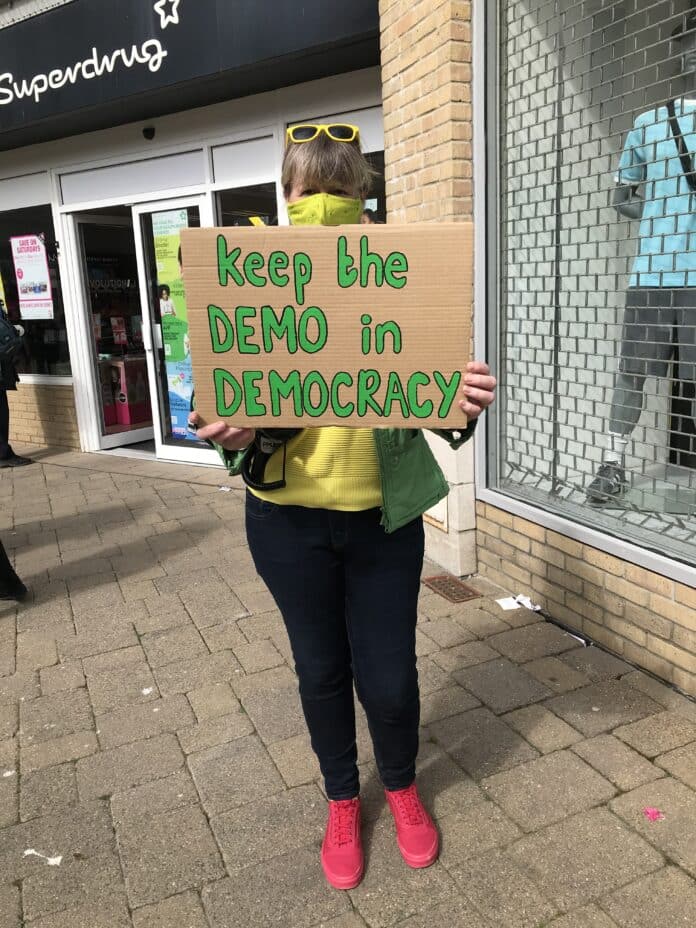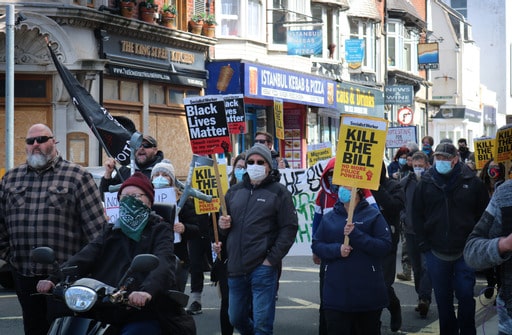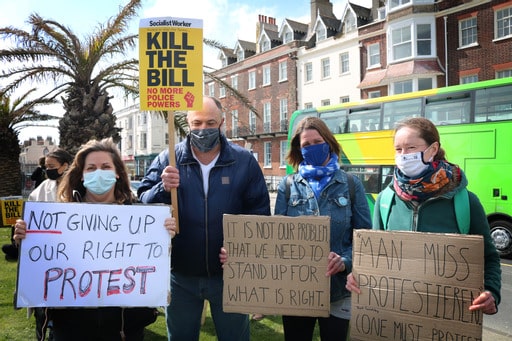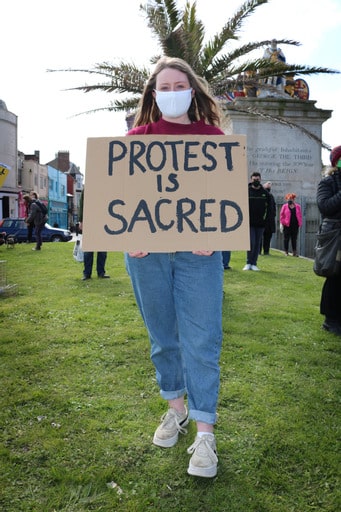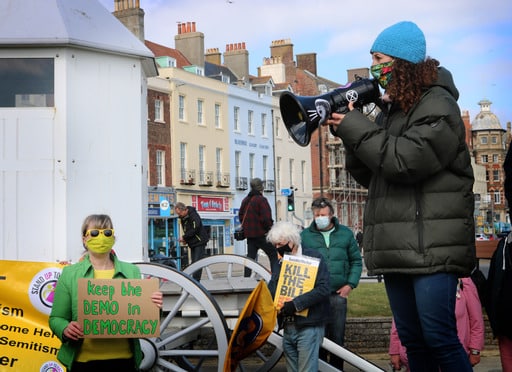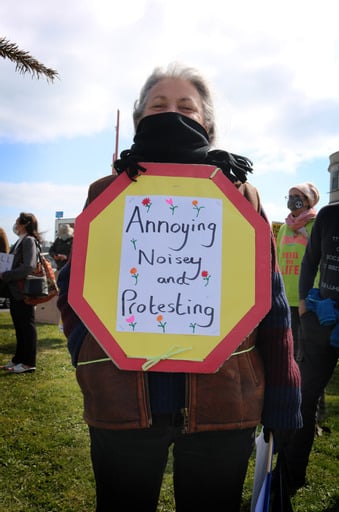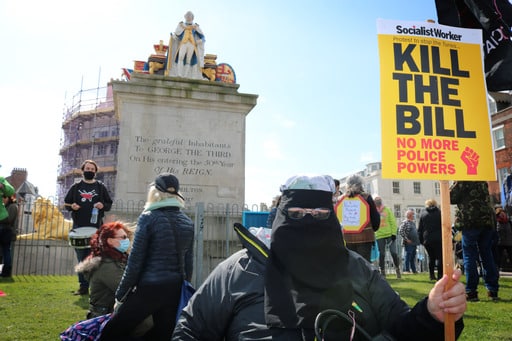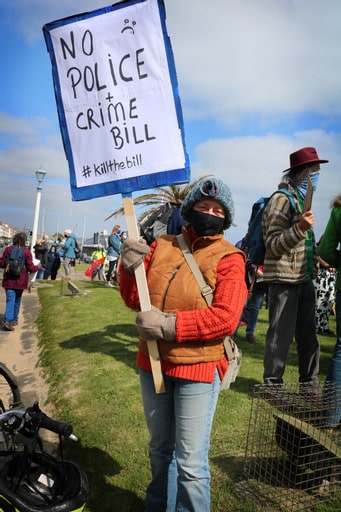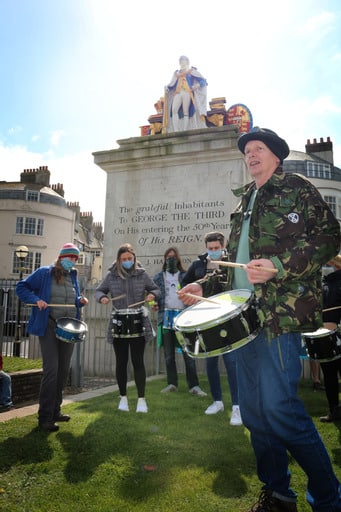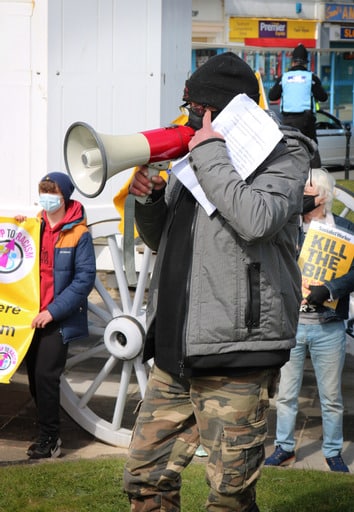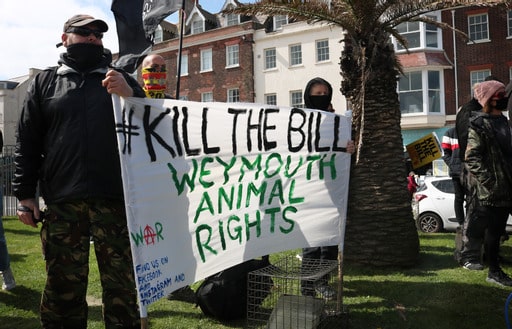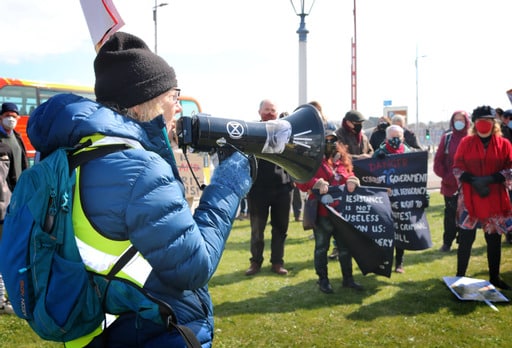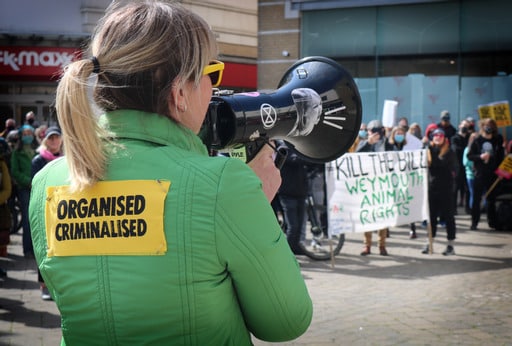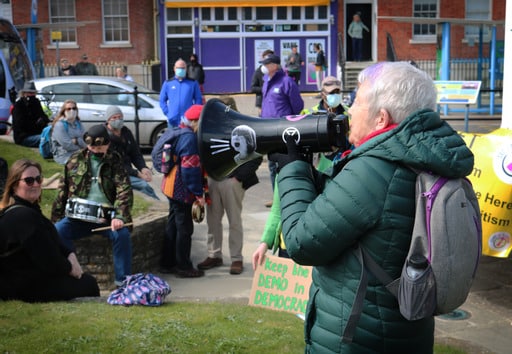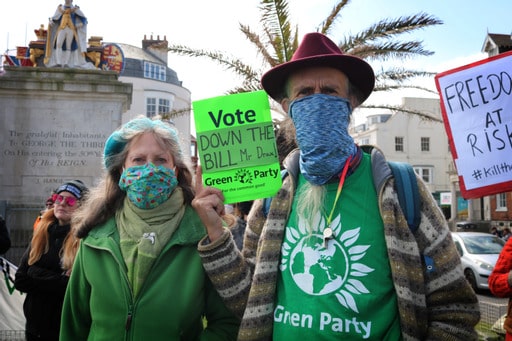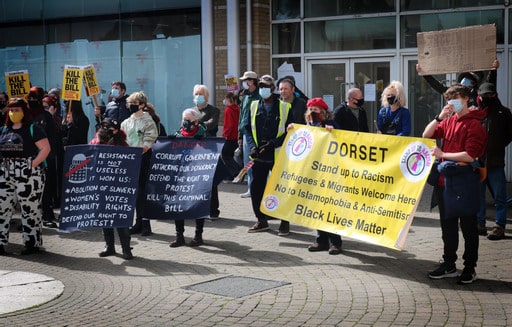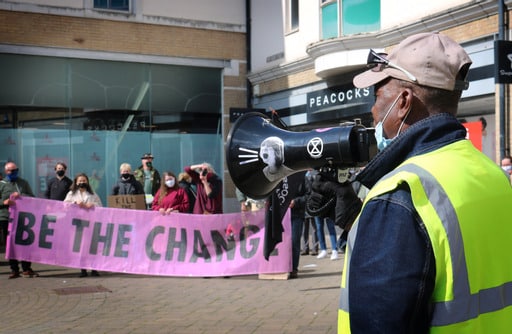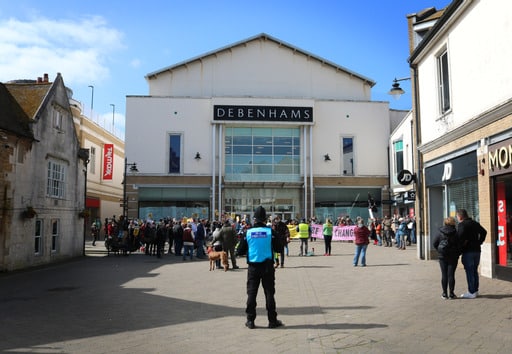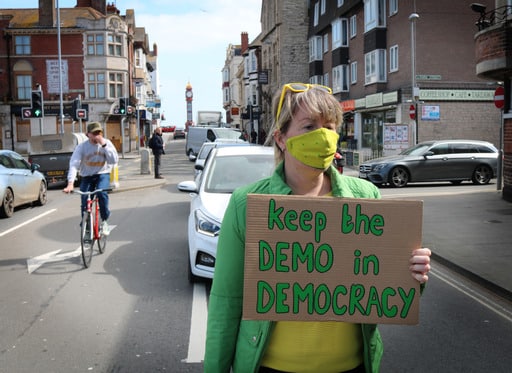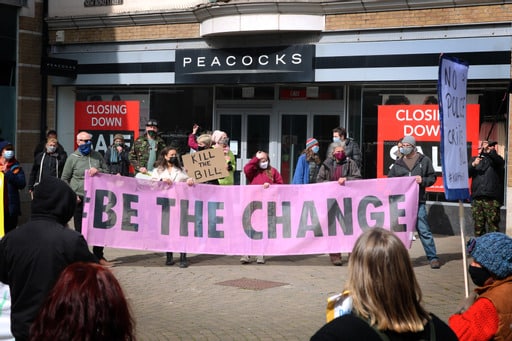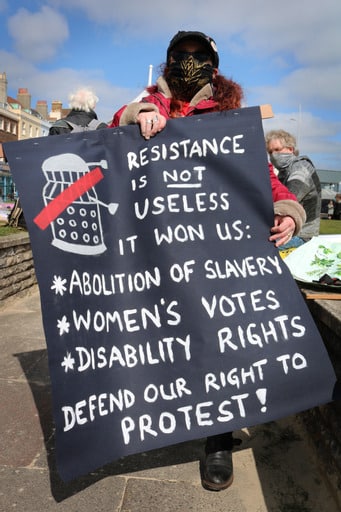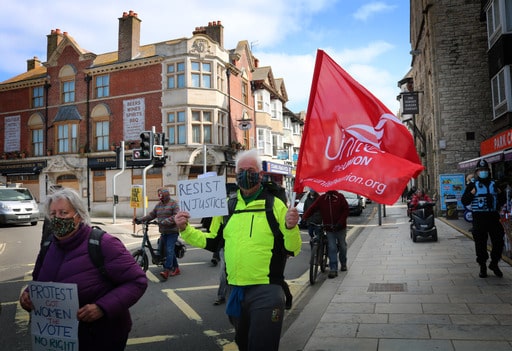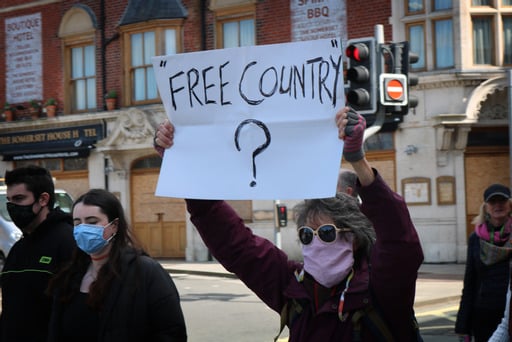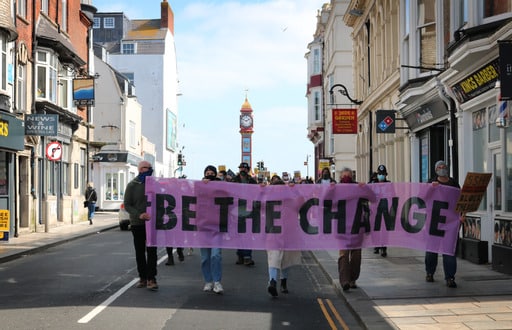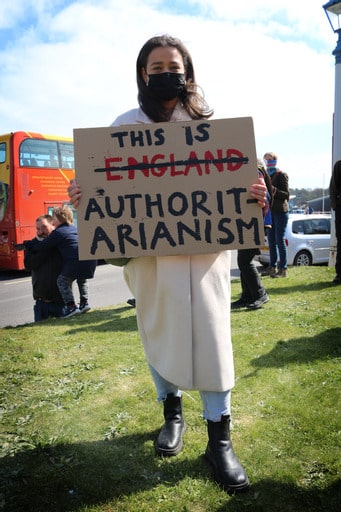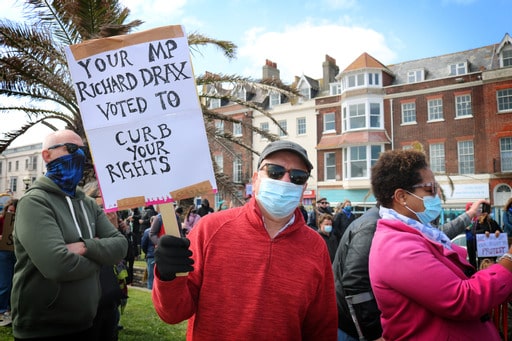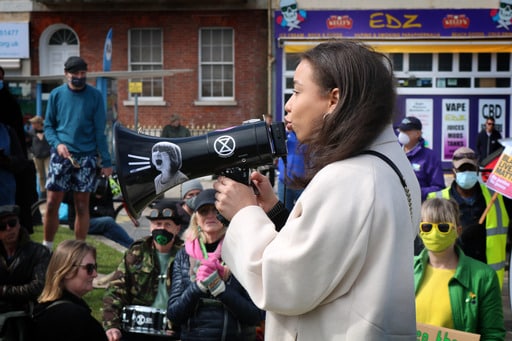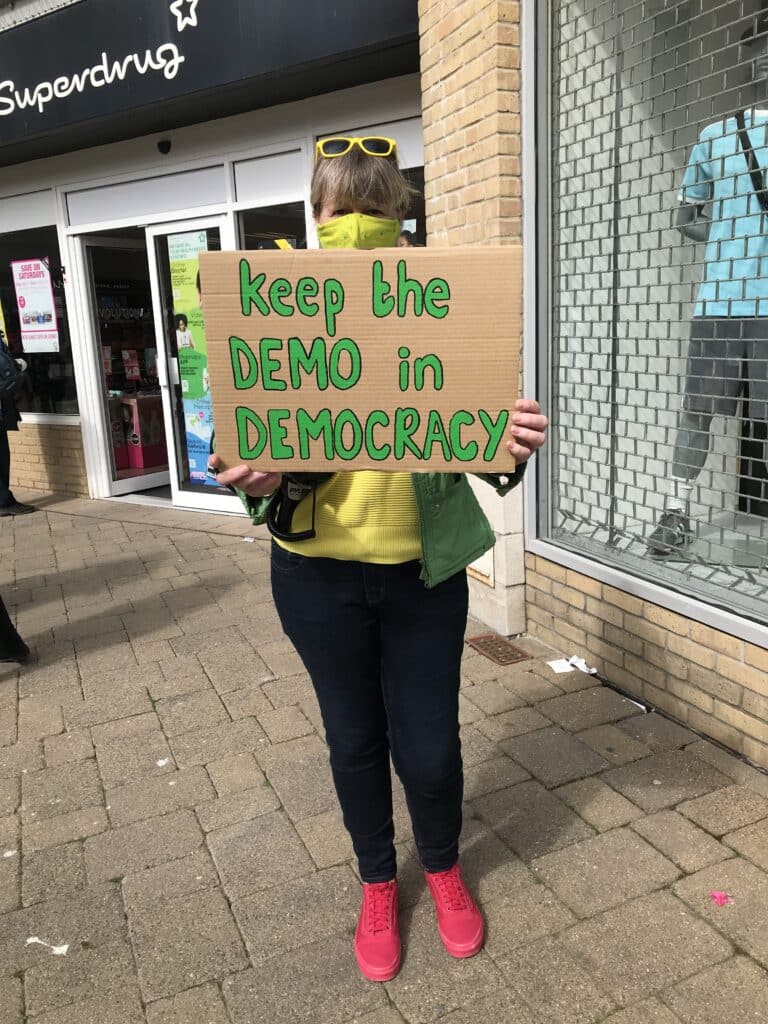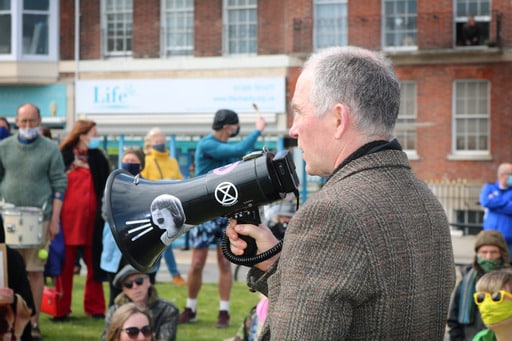According to the present government and their representatives this is the rationale for introducing the Police, Crime, Sentencing and Courts Bill 2021:
‘Ever since the first large-scale Extinction Rebellion protest in April last year I have been talking publicly and with the government about the potential for change to powers and to legislation that would enable the police to deal better with protests in general given that the act that we work to – the Public Order Act – is now very old, [dating to] 1986.
But specifically to deal with protests where people are not primarily violent or seriously disorderly but, as in this instance, had an avowed intent to bring policing to its knees and the city to a halt and were prepared to use the methods we all know they did to do that.’
Metropolitan Police Commissioner, Cressida Dick
A backdrop:
1. What are we going to do?
The measures in the Bill will allow the police to take a more proactive approach in managing highly disruptive protests causing serious disruption to the public.
2. How are we going to do it?
Provisions in the Bill will:
- Widen the range of conditions that the police can impose on static protests, to match existing police powers to impose conditions on marches
This measure will enable the police to impose conditions such as start and finish times and maximum noise levels on static protests. The police already have the power to impose such conditions on marches.
- Broaden the range of circumstances in which police may impose conditions on a protest
This measure will broaden the range of circumstances in which the police can impose conditions on protests, including a single person protest, to include where noise causes a significant impact on those in the vicinity or serious disruption to the running of an organisation. The Home Secretary will have the power, through secondary legislation, to define and give examples of “serious disruption to the life of the community” and “serious disruption to the activities of an organisation which are carried out in the vicinity of the procession/assembly/one-person protest”. These regulation-making powers will clarify ambiguous cases where, if they arise, it would not be clear whether the threshold for the use of such powers have been reached. This will enable the police to make use of their powers with the confidence that they are doing so legally.
- Amend the offence relating to the breaching of conditions
This measure will close a loophole which some protesters exploit. Some will cover their ears and tear up written conditions handed to them by the police so that they are likely to evade conviction for breaching conditions on a protest as the prosecution have to prove that the person “knowingly fails to comply with a condition imposed”. The Bill will change the threshold for the offence so that it is committed where a person “knows or ought to have known” that the condition has been imposed.
- Restate the common law offence of public nuisance in statute
The Bill will implement a recommendation by the Law Commission to introduce a statutory offence of public nuisance, and repeal the existing common law offence. This will provide clarity to the police and potential offenders, giving clear notice of what conduct is forbidden.
- Ensure vehicular entrances to the Parliament Estate remain unobstructed
This measure will enable the police to direct an individual to cease obstructing vehicular entrances to Parliament and make it an offence not to comply with such a direction. This will protect the right of access to the Parliamentary Estate for MPs, Peers and others with business there as recommended in the Joint Committee on Human Rights in their 2020 report on Democracy, freedom of expression and freedom of association: Threats to MPs.
3. Background
Freedom of assembly and freedom of expression are vital rights that the United Kingdom fully supports. The rights of an individual to express their opinion and protest are a cornerstone our democratic society.
There is, and will remain, a balance to be struck between the rights of the protestor and the rights of individuals to go about their daily business. However, there are instances where individuals at a protest behave in a way that causes unjustifiable disruption or distress to others.
In recent years we have seen a significant change in protest tactics which have led to disproportionate amounts of disruption. The current legislation the police use to manage protests (the Public Order Act 1986) was enacted over thirty years ago. The Commissioner of the Metropolitan Police Service has called on the Government to update this ageing legislation to allow the police to safely and effectively manage the highly disruptive protests we see today. The Home Office has therefore engaged with Police Chiefs and commissioned Her Majesty’s Inspectorate of Constabulary and Fire & Rescue Services to conduct an inspection into the policing of protests to understand what needs to be to ensure that the police can safely manage highly disruptive protests whilst preserving citizens’ freedoms of expression and assembly.
The Government is proposing several changes in the law which will improve the police’s ability to proactively manage the most disruptive protests, and provide punitive outcomes that reflect the seriousness of offences committed by protesters.
4. Frequently asked questions
4.1 Will these measures undermine freedom of expression?
No, freedom of expression is a cornerstone of British democracy. The majority of protests in the England and Wales are lawful and will be unaffected by these changes.
These measures will balance the rights of protesters with the rights of others to go about their business unhindered. They will achieve this by enabling the police to better manage highly disruptive protests.
4.2 Why are these measures needed?
Existing public order legislation was passed in 1986 and is no longer fit for managing the types of protests we experience today.
The highly disruptive tactics used by some protesters cause a disproportionate impact on the surrounding communities and are a drain on public funds. For example, the Metropolitan Police Service’s cost for policing Extinction Rebellion’s 2019 “April Uprising” in London was over £16 million.
These measures will improve the police’s ability to manage such protests, enabling them to dedicate their resources to keeping the public safe.
4.3 How will protesters’ rights be protected?
When using these, or existing public order powers, the police must act within the law and be able to demonstrate that their use of powers are necessary and proportionate. They must act compatibly with human rights, principally Article 10 (freedom of expression) and Article 11 (freedom of association).
4.4 What conduct will the new public nuisance offence capture?
The new statutory offence of public nuisance will cover the same conduct as the existing common law offence of public nuisance.
The offence captures conduct which endangers the life, health, property or comfort of the public, or to obstruct the public in the exercise or enjoyment of rights common to the public.
Conduct captured will include nuisances such as producing excessive noise or smells, or offensive or dangerous behaviour in public, such as hanging from bridges.
Why is there a problem?
However, the issue for many across the country, and why the government have postponed the bill until after the local elections, is that for many demonstrating and raising public consciousness cannot wait for police approval… or many of the public will be at the whim of police officers…. For example, fox hunting and other cruel sports sometimes requires spontaneity as information is provided and sometimes demands a rapid response. Fox hunting, which is of course a big favourite of many Tories, appears to be protected and the police are being given heightened powers to deal with those who demonstrate against it.
Also, many argue why should the police who represent the interests of the state as determined by those in power decide what is acceptable or noisy or smelly…? It all appears just another method to conveniently defend a small range of interests.
The demonstrations across the country have been about trying to make it clear to the wider public that handing powers to the police to be able to abuse our freedoms in a country that is supposedly about defending our freedoms appears somewhat contradictory. Surely the right to demonstrate is a right worth upholding and only illegal activity as agreed upon by the public should be prevented.
Meeting at the King’s Statue at 13.00 on Saturday 3rd April, the event began with a range of speeches from across those groups who had organised the event. Members of Extinction Rebellion, Stand Up to Racism Dorset, Weymouth Animal Rights, Dorset TUC, Labour Party members and a number of other groups made their voices heard on the Weymouth seafront….
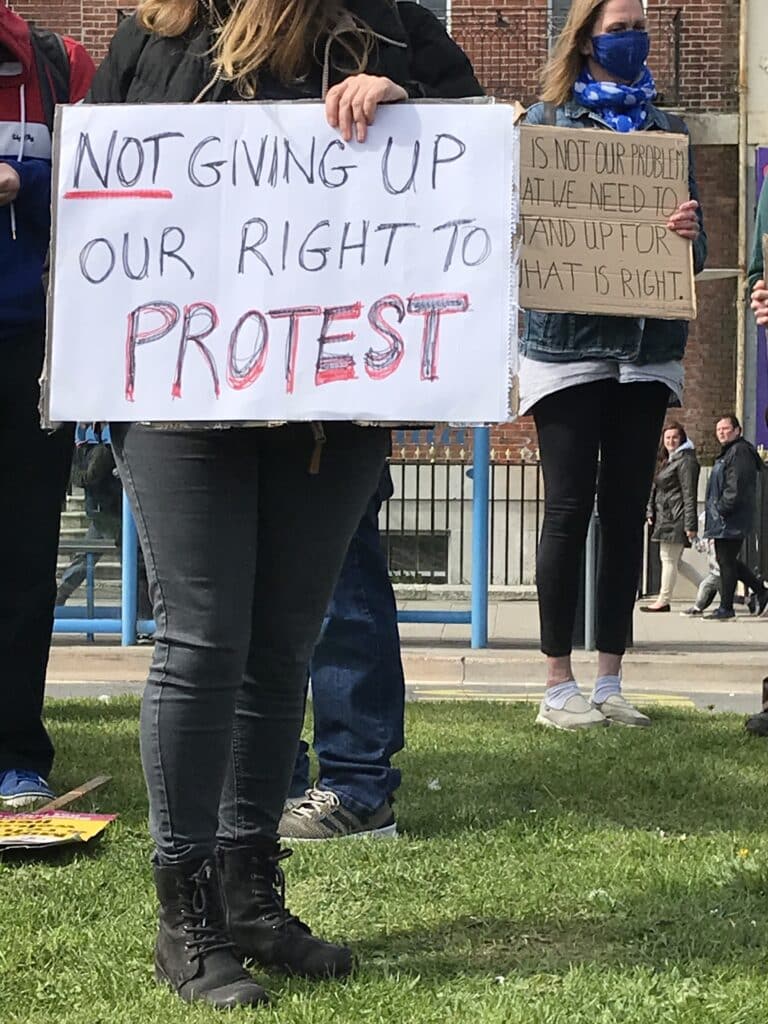
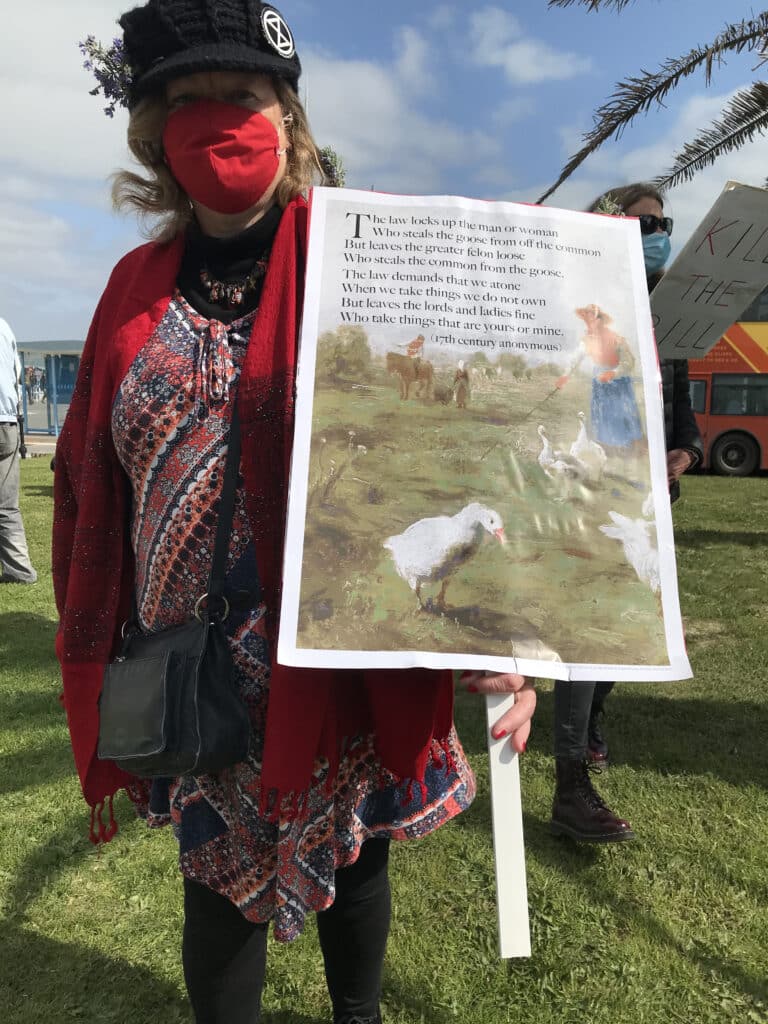
Organised in partnership with the police who thanked all participants following the event Dorset Police thanks participants of peaceful protests in Bournemouth and Weymouth this was a wonderful occasion on a lovely Spring day.
A very summarised version:
From the King’s Statue along the esplanade to King Street and then along Commercial Road and ending up in the Square outside what was Debenhams, the whole demonstration was a peaceful and good natured event with much support from the passing public, on foot and in vehicles.
Everyone should be applauded for making the points without conflict.
The event ended with a fantastic poem from Tom Lane who asked us all to imagine what the year 2050 will be like if we enable the current government to run amok with our rights and our lives.
This Is A Horror Story
The year’s 2050 and I’m lying in bed
The last 30 years running back through my head
The rights we once had back in the day
Before they stripped them clean away
It’s so long ago – seems like an age
Since they did away with the minimum wage
We had weekends too and holiday pay
But it was all too easy to take them away
We marched for justice and we marched against hate
Now justice is what you’re brought to if you speak against the state
We wanted equality but now it couldn’t be clearer
That word belongs to a bygone era
We marched to save our welfare state and for our NHS
But they had the power and, of course, the billionaires’ press
We marched for the vulnerable, the elderly and poor
But they threw us all in prison and simply locked the door
We marched against their wars and for the refugees that they create
But we ended up the losers ‘cos the winners loved to hate
We marched against racism, we marched for gay rights
But with their fascist Laws, they had us in their sights
To even walk up our fair hills and down our distant dales
Their trespass Laws to protect the rich saw me in many jails
And now the world is ending; destroyed by people’s greed
If the billionaires had only realised that’s more money than they need
The climate is a whirlwind now of floods and searing heat
With whole countries underwater and so little food to eat
What do I tell my grandkids now the drinking water’s dirty?
Oh God, how do I tell them their life expectancy is thirty?
If only we’d known at the time that fascism had risen
And did something before they threw us all in prison
I’ll end where this story once begun
The Police & Crime Bill 2021.
**********
But as Dr Suess once wrote: “UNLESS!”
As the repentant Onceler says to the child at the end of The Lorax:
“Unless someone like you cares a whole awful lot,
Nothing is going to get better: it’s not!”
So let’s all believe in, and let’s take action for, a better world. We must fight for the right to speak out for it! Let’s kill this despicable Bill!
Tom’s poem live:
Unfortunately elsewhere in the country the police did not play the game as they did in Dorset
We must remember that one person’s personal experience is not necessarily another’s. By understanding and empathising we can begin to comprehend why so many are challenging the bill and why so many have signed the petition below.
Do not restrict our rights to peaceful protest
United we will never be divided.
Debbie and Jason Cridland
PLEASE SUPPORT US FOR JUST £2 A MONTH

